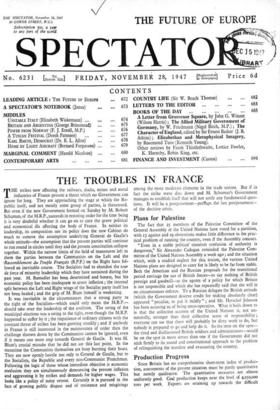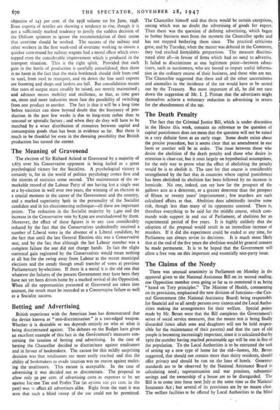Production Progress Since Britain has no comprehensive short-term index of
produc- tion, assessments of the present situation must be partly quantitative but mostly qualitative. The quantitative measures are almost uniformly good. Coal production keeps near the level of 4,250,000 tons per week. Exports are straining up towards the difficult objective of 143 per cent. of the 1938 volume set for June, 1948. Even exports of textiles are showing a tendency to rise, though it is not a sufficiently marked tendency to justify the sudden decision of the Oldham spinners to ignore the recommendation of their union that overtime should be worked. The success of the railway and other workers in the first week-end of overtime working to ensure a quicker turn-round for railway wagons had a moral effect which over- topped even the considerable improvement which it produced in the transport situation. This is the right spirit. Provided that each gain in the battle of production is carefully consolidated, then there is no harm in the fact that the main bottleneck should shift from coal to steel, from steel to transport, and On down the line until exports are booming and shops and larders are full. But consolidation means that rates of output must steadily be raised, not merely maintained ; and advance means mobility and resilience, so that, as time goes on, more and more industries must face the possibility of switching from one product to another. The fact is that it will be a long time before statistics can show beyond doubt that the buoyancy of pro- duction in the past few weeks is due to long-term rather than to seasonal or sporadic factors ; and when they do they will have to be matched by a wiser distribution of resources between capital and consumption goods than has been in evidence so far. But there is much to be thankful for even in the dawning possibility that British production has turned the corner.





























